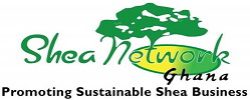
As part of measures towards economic empowerment and sustainable agriculture for women in the shea sector, Shea Netwpork Ghana (SNG) organized quality and efficient shea nut processing for women cooperatives in the Savannah region. The initiative, conducted in June 2024, engaged six cooperatives across various communities including Jantong Dashie, Dakpemyili, Jangyili in the North East Gonja District and Achubunyor, Kananto, and Larabanga in the West Gonja Municipality.
The six day program focused on first-level processing techniques such as de-pulping, parboiling, deshelling, and drying of shea nuts, equipping participants with crucial skills to meet international quality standards.
It was part of the implemetaion of the Ghana Shea Landscape Emission Reduction Project (GSLERP) by the Shea Network Ghana in partnership with the Global Shea Alliance (GSA), Ghana Forestry Commission and UNDP, funded under the Green Climate Fund (GCF).
Participants were first introduced to the principles of cooperative governance and development. This foundational knowledge included the structure, benefits, and management of cooperatives, along with legal and financial aspects essential for sustainable operation.
Practical Training Highlights
The hands-on training covered essential processing steps including de-pulping, where techniques for removing the green outer layer of the shea fruit were taught, emphasizing the importance of using only ripe fruits. Parboiling methods were discussed to prevent germination and ensure kernel quality, with specific guidelines on timing and water usage. Drying after parboiling involved best practices for drying nuts on clean surfaces to maintain quality. De-husking and shelling were demonstrated using appropriate tools to avoid kernel damage. Winnowing and sieving methods, both traditional and modern, were covered to separate kernels from husks. Second drying ensured that kernels were fully dried to prevent spoilage, while sorting and bagging focused on removing damaged kernels and proper packaging for storage.
Significant Outcomes
The training program yielded notable improvements. Participants developed skills to select and process high-quality shea nuts, adhering to international standards. They enhanced their ability to identify and remove contaminants, reducing spoilage risks. Processing techniques were made more efficient, saving time and boosting productivity. The production of better-quality shea nuts enhanced marketability and potential income. Additionally, broken and black nuts were utilized for fuel and soap production, adding value to by-products.
Some participnts, who spoke after the training, lauded SNG and its partners for putting such a practical training together.
“I am happy that i participated in this training, hitherto, i was producing shea butter, but i didn’t know that sorting quality shea nuts results in quality butter. again, we are taught how to time the pubolling processes, these, though we have been producing butter for years, we didn’t know” a partcipant said
“Learning to identify and remove contaminants, will help us ensure higher quality shea nuts, resulting in better shea butter, increase our efficiency, enhance our safety, and as well help us in meeting international standards” another participant stated.
“By training women cooperatives, the program promotes gender empowerment, economic independence, and community development” said by a Project Volunteer at Shea Networ Ghana and and Lead Facilitator for the program
By equipping women cooperatives with advanced shea nut processing techniques, this initiative not only aims to improve their livelihoods but also contributes to the sustainability and global competitiveness of the shea industry in Ghana.
Source: www.sheanetworkghana.org /Adam Abdul-Fatawu Wunizoya/Communications and Member Services Coordinator
